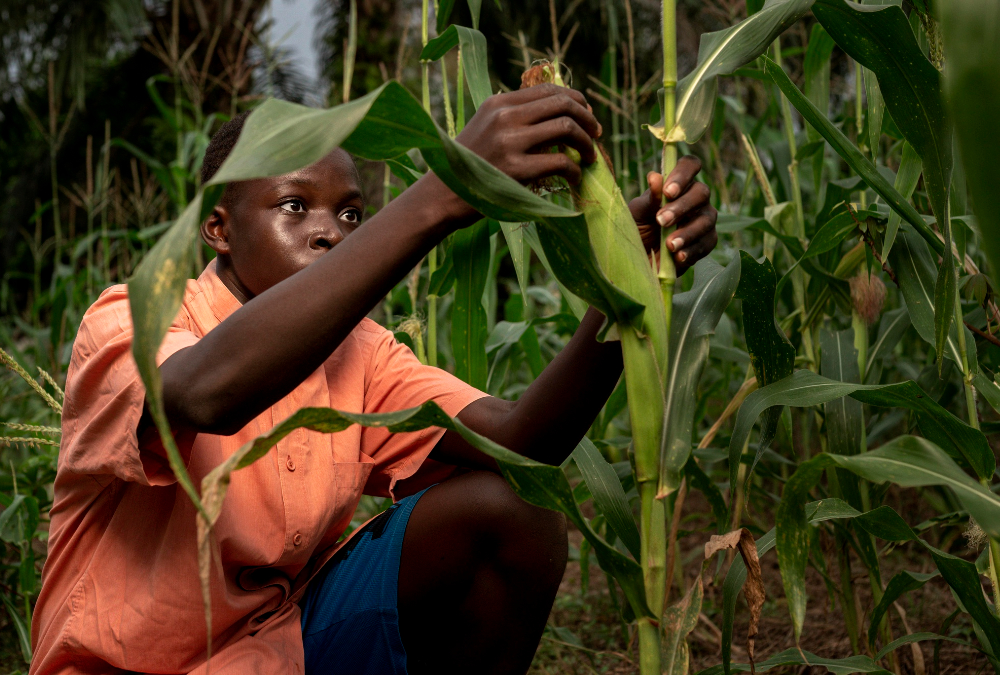Alorh’s eye on the Motherland
Precarious African Food Security


By Mary Alorh
Africa’s food security remains a significant developmental challenge, with food inflation continuing to rise and exacerbating hunger and poverty across the continent. In 2024, Sub-Saharan Africa is projected to have the highest proportion of the global population experiencing food insecurity, estimated at 29 percent.
Despite having substantial arable land, the continent’s food security is hindered by a lack of investment and technological advancement in agriculture. As a result, many African nations depend heavily on global imports for their food supply, leaving food security vulnerable to disruptions in international markets.
The impact of such disruptions was evident in 2022, when the Russian-Ukrainian conflict severely affected food supply chains, particularly in Africa. Ukraine’s inability to export wheat led to a sharp increase in the price of basic staples, such as bread, in countries like Ghana and Kenya, which rely on imported wheat.
Over the years, several African governments have introduced policies aimed at improving food security. For instance, under the leadership of former President Muhammadu Buhari, Nigeria imposed a ban on rice imports and significantly invested in local rice production, yielding positive results.
However, challenges such as population growth and insecurity continue to pose barriers to achieving self-sufficiency.
With strategic investments in technology, infrastructure, and security, Africa’s arable land holds the potential not only to feed the continent’s growing population but also to contribute to global food supply.
Countries such as the Central African Republic and South Sudan are facing extreme food insecurity. In the Central African Republic, approximately 2.4 million people are experiencing food scarcity, while in South Sudan, 63 percent of the population is acutely food insecure due to economic instability and ongoing conflict.
Meanwhile, some foreign nations are actively investing in Africa’s agricultural sector, particularly in crop production. Notably, Gulf States like the United Arab Emirates are expanding their agricultural ventures in Sub-Saharan Africa, establishing commercial farms in countries such as Sudan to meet the growing demand for food in their own countries.
Despite challenges, some African nations are making strides in improving food security. Nigeria’s agricultural policies, including the Green Alternative and the Agricultural Promotion Policy (APP), have led to significant increases in the production of key crops like rice, cassava, and maize.
Agriculture employs approximately 70 percent of the Nigerian workforce, providing a solid foundation for food security.
In Ghana, the government has temporarily banned grain exports to address local food shortages resulting from low crop yields during the current season.
Ultimately, with strategic investments in technology, infrastructure, and security, Africa’s arable land holds the potential not only to feed the continent’s growing population but also to contribute to global food supply.
Mary Alorh is Director of Administration at DefSEC Analytics Africa Ltd., and is an expert in Gender, Youth, and Peace & Security initiatives in West Africa.

